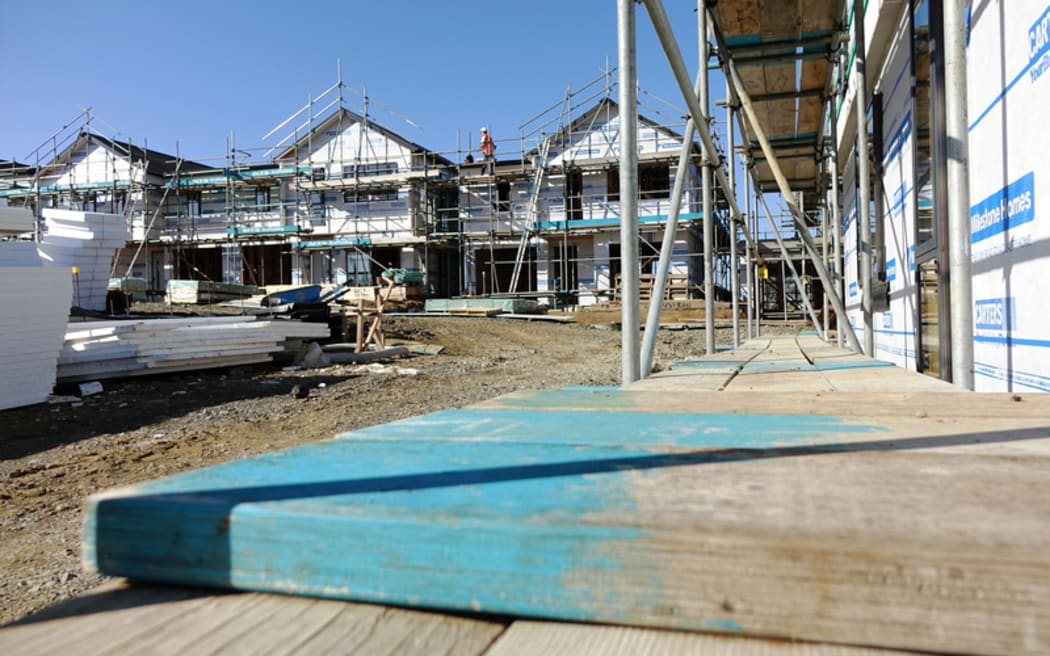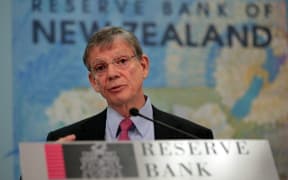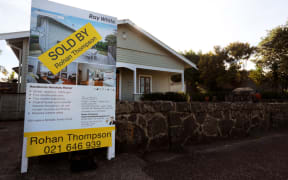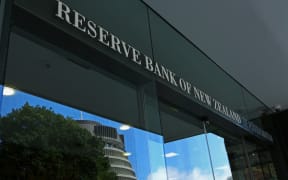Prime Minister John Key is dismissing concerns today's Official Cash Rate (OCR) cut will add fuel to the already-overheated Auckland housing market.

A housing development in Tamaki, Auckland. Photo: RNZ / Kim Baker Wilson
The Reserve Bank this morning reduced the rate to 3.25 percent, and signalled further decreases could follow. The rate had been at 3.5 percent for nearly a year.

John Key Photo: RNZ / Alexander Robertson
Banks immediately announced mortgage rate cuts, and commentators predicted house prices in Auckland: QV figures released this week showed Auckland house prices jump 16.1 percent in the year to May, to an average of $828,502, and data released today showed the city has its first $2 million suburb, with houses in Herne Bay averaging that price.
Despite that, Mr Key said he was confident the OCR cut would not fuel significant price rises in Auckland, because the Government was increasing the supply of houses there.
"Look, it'll be at the margins. Interest rates actually have been very low in New Zealand - they've been at 50-year lows for a very long period of time," he said.
"The banks have been engaging in somewhat of a mortgage war anyway. Even without the Reserve Bank Governor, they've been lowering interest rates.
"So I suspect it'll help home owners but I'm not sure it'll do too much to accelerate the market."

Gareth Kiernan Photo: Supplied
But Infometrics chief forecaster Gareth Kiernan said interest rate cuts were likely to stimulate the Auckland market, especially before tighter lending restrictions aimed at cooling the rampant market come into effect in October.
Those restrictions were particularly aimed at investors and meant they would have to have a 30 percent deposit for a bank loan but Mr Kiernan believed investors would try to take advantage of lower interest rates before they were implemented.
"There's a pretty well-established relationship between demand for housing and interest rates - when interest rates go down, demand for housing does tend to go up," he said.
"There's other factors that come into play there as well but certainly it is major driver of the housing market."
REINZ predicts climb
Real Estate Institute figures released today showed the median price of residential properties rose 7 percent in May, driven by a 20 percent increase in Auckland prices; they rose $124,000 to $749,000 in the City of Sails compared with the previous May
As well, the number of $1 million sales in Auckland more than doubled to 843, up from 384 last year.
Real Estate Institute of New Zealand chief executive Colleen Milne said Auckland was unlikely to settle down, with the number of houses for sale there remaining low and auction sales continuing at near record levels.
"With today's lowering of the OCR, which will then obviously result in lowering interest rates, I anticipate we're going to see more climbs in the house prices across Auckland."
Mr Kiernan said OCR changes were not driven by the effect on mortgage interest rates but that was what they equated to for many people.
"Two thirds of us own our own property and I think half of those people who own their own property have a mortgage, so obviously it's one of the first things that does jump into people's minds."
But the news was not so good for those who relied on interest from savings, including many pensioners, as their returns would drop.
"We've seen those rates drifting down a little bit over the last few months and, if anything, this is just going to add a bit more downward pressure on those," he said.
"So yes, if you've got your money in the bank, you're not going to be getting much of a return on that."






